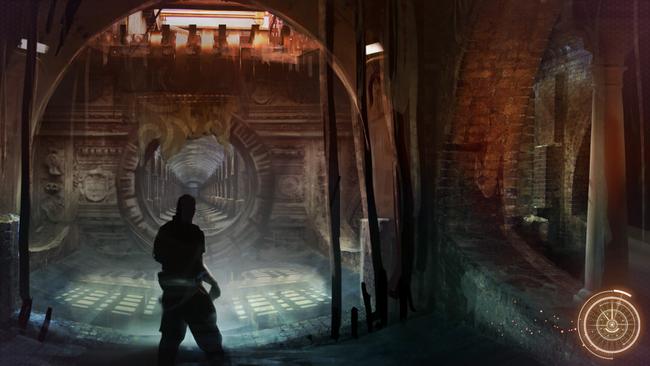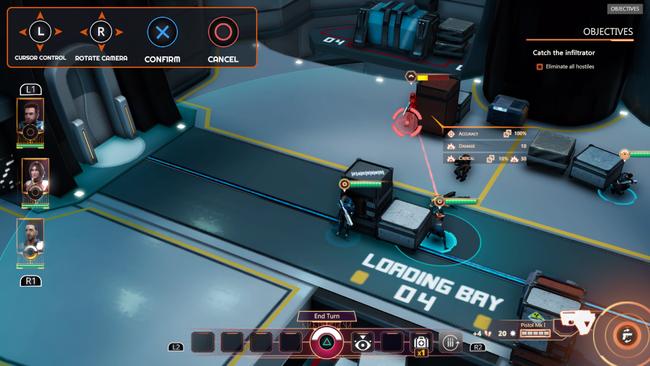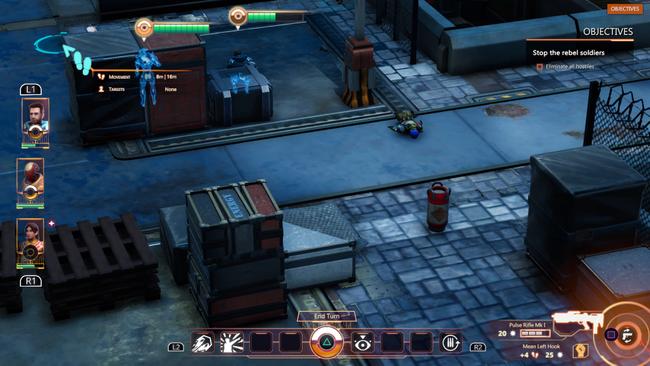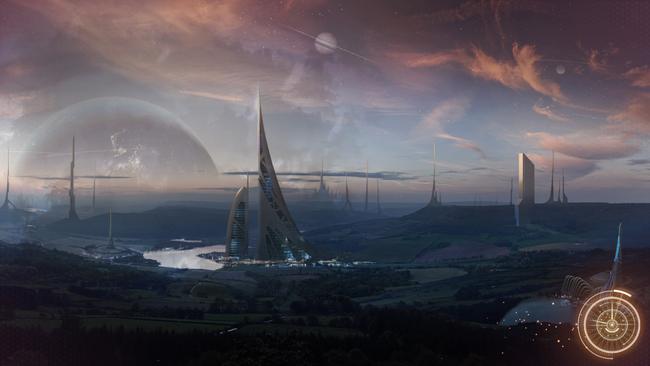Element Space Review
Space. Endless possibilities, endless choices. That’s the moving factor behind Element Space, Sixth Vowel’s debut, tactics RPG. This is shaping up to a good year for indie games, and an even better year for turn-based RPGs. It’s a genre that brings together new and old fans eager for a game that lets you shape the way it plays out through dialogue choices and battle strategies. However, while Element Space manages to provide a story reminiscent of a space opera, it falls short in its delivery and execution.
The premise behind Element Space is a tried and true story. In the far future, you play as Captain Pietham in a society splintered after multiple factions sought to take control of newly colonized space. Pietham’s job is to maintain that peace...until he can’t. The journey begins with orders to bring the starship Inspiration to the city of Truce so that the first Galactic Congress can be held and unification can begin. However, there’s sabotage, framing, and terrorists threatening the very peace people dedicated their lives to. Despite being a bit heavy-handed and on the nose, it’s clear a lot of thought was put into the plot of Element Space. Each mission takes you to a new area (or faction) that has its own politics, culture, and corruption. The way you interact with the people there determines how your game will progress and who will decide to join your cause as a future ally.

Locales in between missions were created simply as an environment to move around in. There are no NPCs or objects to interact with, but they look clean and can be easily identified by the mission and faction you are working with. The same time spent on creating new worlds with their own identities was put into making the worlds you move through individual and unique, albeit a bit underdeveloped.
Throughout the story, each mission is designed to track down and destroy Tempest, the terrorist group behind the initial attack. Early on in the game, it’s clear the message is political. The game outright states that Tempest is a Fascist organization and they’re bad. I appreciate that simple message. I appreciate a game that isn’t afraid to make definite statements on politics. It’s a shame that the political message in Element Space felt watered down and simplistic.
Unfortunately, the story and political message in Element Space become bogged down by its simplistic dialogue, robotic voice acting, and the choppy pace that conversations followed. The voice acting is new to the console versions of the game, but instead of making the game feel more engaging, bad performances lead it to be a poorly implemented addition.
Another issue I found with the dialogue was the way choices often followed a rather strict binary. As Captain Pietham, your moral alignment can lean into four different ideologies: humanism, independence, autocracy, and bureaucracy. While playing, you have the option of turning ideology icons on so that you’re able to see the corresponding ideology to the dialogue choice you make. The choices weren’t revolutionary and I often found myself wishing I could make a harder decision. I wanted to struggle with myself over the future I was directly impacting. Overall though, it achieved its goal of providing a dynamic experience that does in fact change with the choices you make.

Now, on to the important part of a tactical game, combat. To start, there are three difficulties, easy, story and extinction. I played on story mode, but when I went through the same battles on the easy difficulty, there honestly wasn’t any real perceivable difference at all. The only change was the fact that easy mode allows unlimited retries while story mode only allows for two. Missions are often made up of multiple battles with phases in each. With the moments between combat going by in a matter of a few minutes, combat is a long, slow, mind game. It’s simple and follows the typical turn-based formula with primary and secondary actions. Initially, the only secondary action is movement. All other actions - shooting a gun, healing, disabling shields - are primary actions. While this isn't an unfair mechanic, it does feel limiting when skills and upgrades are already rather limited to three or 4 actions other than a basic attack. Combat can be challenging for that reason. Instead of having the freedom to be creative, each mission was more like a puzzle with a specific answer rather than being fluid and open to change/creativity with skills. For example, the first character you play as is Pietham himself. He plays the role of a support tank initially and while weapon changes do add to his skill set, the main upgrades available add small stat changes and range lengths. It causes each fight to remain stagnant as you use the same techniques and skills over and over again.

This form of turn-based combat became increasingly difficult to play through when I realized Element Space does not have a manual save feature. Instead, the game only allows for auto-saves and a checkpoint system. Wanting to restart a particularly bad mission could mean restarting from the current battle or being pushed all the way back to the ship before the mission even started. Checkpoints were vague and I wasn’t able to figure out when the game decided when a checkpoint was needed.
Everything being said, the technical issues within Element Space made it almost impossible to get through. Prior to the updates that came over the course of its first week after launch, Element Space remained buggy to the point of unplayability. Combat was often full of glitches. During the second mission, I failed for the first time with my entire team dying and the game simply got stuck. I have to assume I was trapped in limbo between my failing and a screen that said “mission failed. Retry?”, but I’ll never know. I failed again to see if the bug persisted and it did. The only thing I could do was to completely close the game and re-open it and hope the checkpoint was nearby. During combat, characters and enemies would often get stuck in idle animations. During one particularly rough mission, I had a character get stuck so far off-screen that it was impossible to see and target her and she didn’t have enough movement for me to even attempt to move her onto the screen. During all of this, she was still receiving turns that I had to simply pass on until I again, had to simply close the game entirely and hope the last checkpoint would be kind. Some of these issues were patched out but currently, a week after launch, the game still doesn't run as smoothly as it should.
It’s hard to say Element Space is a game worth checking out at this moment. It's narrative and visual design shine in comparison to everything else. It’s the one part of the game that felt loved and unaffected by the console port. In regards to this being an RPG, it falls short and as a turn-based tactical game it doesn’t hold up. This port has the potential to be good. Combat, when it worked, was fun and had interesting mechanics. Unfortunately, the game began to feel empty as most of the time in it was spent restarting entire missions, walking through beautiful but empty levels and dealing with unskippable dialogue and scenes. Progression is too difficult and too slow for Element Space to work as a game despite it all. My most enjoyable moments in the game were during loading screens as the artwork displayed for each one was painterly and specific to the area I was in.

When Element Space is bad, it’s bad to the point of having to fully close the game and lose anything from a few minutes to a few hours of progress. When it seems good, I began to wonder if it only felt that way because almost every other part of the port feels unfinished. Overall, I appreciate parts and pieces of Element Space, but it cannot hold its own within the genre. Element Space has potential, but potential often isn’t enough.